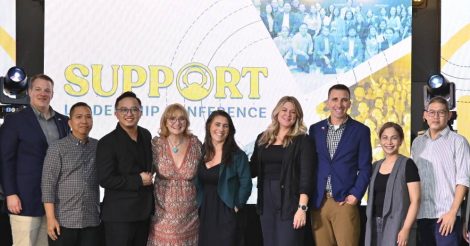Since time in memorial, it was widely believed that developing close friendships at work were more detrimental than productive. People always advised against getting into business with a friend as it could “ruin” the relationship. They would say that getting into business with a friend is bad for business, and to some extent, for friends turned business partners it has been challenging indeed. However, it was studied that friendships that start as business contacts and develop into a close friendship are less nuanced and more beneficial.
A study done in the University of Seoul in South Korea back in 2006 stated that the positive potential for both individuals and the organization of having friendships at work may override the negative aspects. Workplace friendship is mainly categorized as boss and subordinate relationships. It was suggested that workplace friendships develop positive workplace attitudes with more emphasis on the quality of the friendship versus the opportunity behind it. The study emphasized the importance of workplace friendship to increase the positive work attitudes and performance of team members.
These cornerstone research initiatives paved the way to a more inclusive and less boxed-in view of the leader-follower dynamic.
Enter the year 2021, where these theories are put into practice and we see more vibrant and engaged companies like Rocket Station popping up. LinkedIn has chimed in with publishing multiple workplace articles pushing the need, not want, but the need of having a close friend at work if you desire to be productive. They ran a study that suggested that having a work BFF improves a team member’s overall happiness. People who feel less connected to their colleagues tend to feel less productive.
Here is how you can start developing closer relationships with the people you want to be friends with at work based on LinkedIn’s Relationships @Work study:

SHOW GENUINE INTEREST IN THEIR LIVES.
Be engaged—sincerely engaged about the things they care about outside of work. Take time to listen actively and show interest in what they share. An insider tip to achieve this is to maintain eye contact, put down your phone and do affirmative nods while absorbing the details they share with you. Most of the time, people respond to great listeners with more trust than great talkers.

BE MINDFUL OF THEIR SCHEDULE
In LinkedIn’s study, it shows that teammates get very rattled when unprecedented actions and tasks are done to disrupt their work schedule. They’ll more likely see you as a nuisance to their productivity versus someone who will actually aid them at work. Find ways to be mindful of their schedule by sending over a message to ask if they are free first and try to find ways to connect with each other at your shared down time.

GIVE CREDIT WHERE CREDIT IS DUE
This comes as a no-brainer, but believe it or not, some people are indifferent to giving thanks and appreciation to others not because they do not want to, but because they don’t know how to. So, practice by seeing little positive things that they do and start saying thank you for these things. Give them praise for a job well done and be thankful for their contributions no matter how small by verbalizing it.

BOND OUTSIDE THE OFFICE
Find time to bond in an environment that isn’t at the office. You can bond with each other by messaging or just doing quick video calls if meeting outside the office for coffee or doing errands together is too much of a stretch for now. The goal is to see your teammate in the lens of normalcy. You get to know them outside of work and see that deep down inside, they are just like you, someone trying to earn a living and finding a place to belong too.
This February, Rocket Station places emphasis on the relationships that build us and make us the people we are today. If you like the articles you have read so far, feel free to sign up in our newsletter to receive updates on more articles like this.
RELATED STORIES



SHARE
POST A COMMENT


